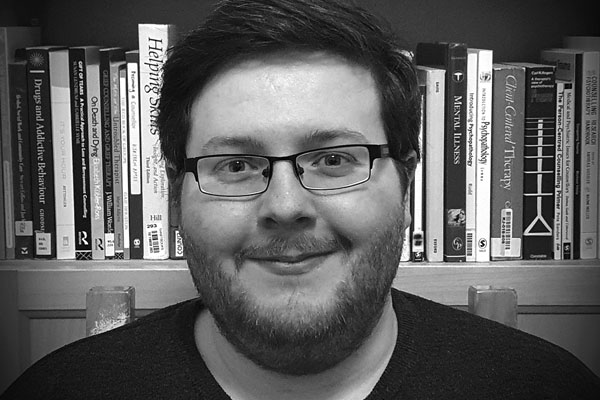February marks LGBTQIA+ History Month in the UK, and this year’s theme is Politics in Art.1 Some people might wonder how this connects in any way to therapy; however, if we look at the history of how LGBTQIA+ people have been treated, a connection becomes clear. In the UK there is a long history of LGBTQIA+ people being pathologised, and prior to that many sexual activities were considered to be sinful or morally wrong.
Throughout the 19th and 20th centuries, various psychological theories developed about homosexuality, ranging from mental illness to ideas that it was an abnormality caused in pregnancy.2 Freud thought that homosexuality was the result of psychological immaturity.3 For decades, homosexuality was considered a mental illness and the decision to remove it from the International Classification of Diseases (ICD) was in 1990.4 However, it wasn’t actually removed from the publication until 1992. The World Health Organisation have only in the last few years moved transgender health out of the ICD chapter on mental and behavioural disorders.5 Additionally, the political decisions currently being taken around issues such as conversion therapy may come into the counselling room. LGBTQIA+ people may need to talk about feeling afraid or unsafe, particularly when we acknowledge that, according to research by Galop, 80% of trans people have experienced a hate crime in the last 12 months.6 It would be impossible to divorce counselling from the impact of politics.
We should be aware that some LGBTQIA+ people have been harmed by therapy. According to Stonewall, around 7% of LGBTQIA+ people in the UK have experienced or been offered conversion therapy.7 No therapist should attempt to change someone’s gender or sexual identity. The Memorandum of Understanding, of which BACP is a signatory, highlights that conversion or reparative therapy is unethical and potentially harmful.8 It's further emphasised in the BACP Ethical Framework (point 22.e), which states: We will respect our clients as people by providing services that:
'challenge assumptions that any sexual orientation or gender identity is inherently preferable to any other and will not attempt to bring about a change of sexual orientation or gender identity or seek to suppress an individual’s expression of sexual orientation or gender identity'9
There's fantastic training available for therapists. Particularly during LGBTQIA+ History Month there are hundreds of events, articles, training and more around the UK, which are opportunities to expand our awareness and understanding.
Reflecting on systemic barriers and oppression experienced by LGBTQIA+ people throughout the years connects me back to art. Art has been used by LGBTQIA+ people as a way of expressing who we are or what we have experienced. A part of art is the freedom to express things in any way we wish to.
Decades of art, drag, pride protests and stories are out there. Some of these are filled with sorrow while others express profound beauty and love. Queer history is rarely, if ever, spoken about in schools, colleges or therapy training. I’ve heard it said that you need to experience counselling to know what it's like. In a similar vein, to understand Queer Art I think it's important to experience it. I'm reminded of my visit to the Schwules Museum in Berlin, which focuses on LGBTQIA+ history, and the impact that witnessing those stories left on my husband and I.
For therapists ready to learn more about queer history, let’s take inspiration from the history month theme, Politics in Art. I suggest counsellors take some time this month to look at queer art such as pieces by Dorothy Brabham Hatt, Fiore de Henriquez, Jean-Michel Basquiat, Keith Haring, and Mark Aguhar. These are five artists being celebrated by LGBTQIA+ History Month this year.1
Spend time with their art, really tune into it. It may be worth reflecting on what you notice, which parts challenge you or what images resonate with you. What themes or barriers do you see? Consider how this might translate into your practice. Connecting with this art, in combination with appropriate CPD, can be a catalyst for reflecting on ways to improve our practice. Through this, we may be more capable to hear and hold LGBTQIA+ clients.
References
1 Schools Out, History Month 2022, 02 2022. [Online]. Available: https://lgbtplushistorymonth.co.uk/2022-resources/. [Accessed 09 02 2022]
2 K. Pollock, Bad, Mad and Dangerous to know. A talk for LGBT history month., 2018. [Online]. Available: https://counsellinginnorthumberlandcom.cdn.ampproject.org/v/s/counsellinginnorthumberland.com/2018/02/14/bad-mad-and-dangerous-to-know-a-talk-for-lgbt-history-month/amp/?amp_gsa=1&_js_v=a8&usqp=mq331AQKKAFQArABIIACAw%3D%3D&fbclid=IwAR1Z32Pl0cWSuN-7Iy5. [Accessed 09 02 2022]
3 Psychology Today, Was Freud Gay Friendly, 06 05 2020. [Online]. Available: https://www.psychologytoday.com/gb/blog/psychoanalysis-unplugged/202005/was-freud-gay-friendly. [Accessed 09 02 2022]
4 World Health Organisation, Stop Discrimination against homosexual men and women, 17 05 2011. [Online]. Available: https://www.euro.who.int/en/health-topics/health-determinants/gender/news/news/2011/05/stop-discrimination-against-homosexual-men-and-women. [Accessed 09 02 2022]
5 World Health Organisation, Transgender Health in the context of ICD 11, 2022. [Online]. Available: https://www.euro.who.int/en/health-topics/health-determinants/gender/gender-definitions/whoeurope-brief-transgender-health-in-the-context-of-icd-11. [Accessed 09 02 2022]
6 Galop, Transphobic Hate Crime Report 2020, 10 06 2020. [Online]. Available: https://galop.org.uk/resource/transphobic-hate-crime-report-2020/. [Accessed 09 02 2022].
7 Stonewall, 7 Things you might not know about Conversion Therapy, 2021. [Online]. Available: https://www.stonewall.org.uk/about-us/news/7-things-you-might-not-know-about-conversion-therapy. [Accessed 09 02 2022].
8 BACP, Memorandum of Understanding on Conversion Therapy in the UK, 2017. [Online]. Available: https://www.bacp.co.uk/media/6526/memorandum-of-understanding-v2-reva-jul19.pdf. [Accessed 09 02 2022].
9 BACP, BACP Ethical Framework, 2018. [Online]. Available: https://www.bacp.co.uk/events-and-resources/ethics-and-standards/ethical-framework-for-the-counselling-professions/. [Accessed 09 02 2022].
Read more...

Queer spirituality
Open article: Matthew Cormack offers resources for working with gender, sexuality and relationship-diverse clients’ spirituality. Thresholds, January 2022

Ten minutes with... Matt Cormack
Matt Cormack, author of our article 'Queer spirituality' replies to questions about his work and what inspires him. Thresholds online, January 2022

Blogs and vlogs 2022
News and views from members, staff and clients
Views expressed in this article are the views of the writer and not necessarily the views of BACP. Publication does not imply endorsement of the writer’s views. Reasonable care has been taken to avoid errors but no liability will be accepted for any errors that may occur.
